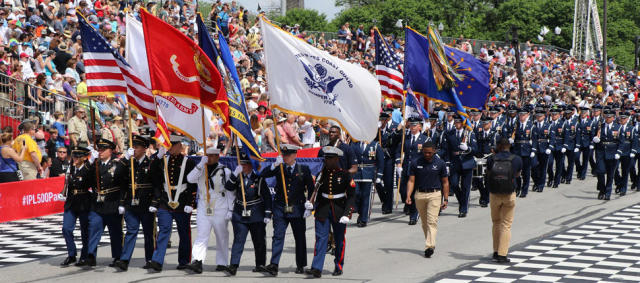A parade is a procession of people, usually organized along a street, often in costume, and often accompanied by marching bands, floats, or sometimes large balloons. Parades are held for a wide range of reasons, but are usually celebrations of some kind. In British English, the term 'parade' is usually reserved for either military parades or other occasions where participants march in formation; for celebratory occasions, the word procession is more usual. In the Canadian Forces, the term also has several less formal connotations. Protest demonstrations can also take the form of a parade, but such cases are usually referred to as a march instead.
The parade float got its name because the first floats were decorated barges that were towed along canals with ropes held by parade marchers on the shore. Floats were occasionally propelled from within by concealed oarsmen, but the practice was abandoned because of the high incidence of drowning when the lightweight and unstable frames capsized. Strikingly, among the first uses of grounded floats — towed by horses — was a ceremony in memory of recently drowned parade oarsmen.[citation needed] Today, parade floats are traditionally pulled by motor vehicles or are powered themselves.
Multiple grand marshals may often be designated for an iteration of the parade, and may or may not be in actual attendance due to circumstances (including death). . A community grand marshal or other designations may be selected alongside a grand marshal to lead the front or other parts of the parade.

